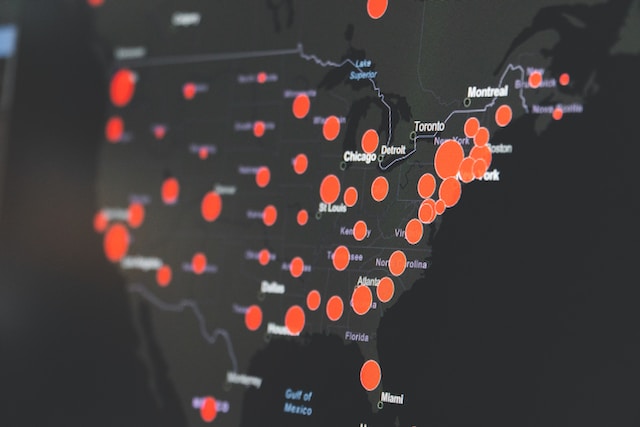The growth in Belgian-Gulf trade relations is a clear sign of a bright and promising future in trade and economic relations between the six-member Gulf Cooperation Council (GCC) and Belgium, said Qaisar Hijazin, Secretary General of the Arab-Belgian-Luxembourg Chamber of Commerce (ABLCC).
In an interview with the Kuwait News Agency (KUNA), Hijazin referred to the recent figures released by the Belgian Foreign Trade Agency, which showed that Belgian exports to the GCC went up by 23.9 percent in 2022, from 6.73 billion euro (USD 7.34 billion) in 2021 to 8.34 billion euro (USD 9,09 billion) in 2022.
On the other hand, Belgium’s total import from GGC increased by a whopping 92 percent from 6.41 billion euro (USD 6.99 billion) in 2021 to 12.31 billion euro (USD 13.4 billion) in 2022. “The GCC countries rank twelfth among exports to Belgium and also the twelfth position among imports from Belgium,” he said.
Hijazin said the relations between the GCC and Belgium go back to long decades of cooperation and trade exchanges.
These relations have developed significantly in recent years, he said.
Hijazin noted that the best evidence and importance that Belgian economic activities attach to the GCC countries, is the visit that Belgian King Philippe Queen Mathilde paid to the Sultanate of Oman and the United Arab Emirates last year, which resulted in signing of several commercial agreements and launching joint projects in the field of green energy. Prior to that, Princess Astrid, the Belgian king’s sister, headed two economic missions to the Kingdom of Saudi Arabia and the Sultanate of Oman in 2014, and to Qatar and the United Arab Emirates in 2015. This importance is also evident through the presence of four Belgian embassies in those countries, and the Belgian bodies for foreign trade representative offices in these Gulf countries, he said.
It is clear that the oil and gas sector are of great importance to the GCC economies at the global level.
However, the GCC countries began years ago to diversify their economic activities and sources of income and invest in various economic projects in the long term, which contributed to strengthening their relations with their trading partners, including Belgium, said Hijazin.
Economic diversification in the Gulf countries includes renewable energies, health care, waste recycling, port business, infrastructure, tourism, food security and technologies, in other words, the areas in which Belgium excels.
There are many Belgian companies that are very active in the region and that have completed large projects, he said.
In the opposite direction, Belgium attracts Gulf capital, with Kuwait’s Q8 international petroleum brand the biggest Arab investor in Belgium. Saudi Arabi’s multinational chemical manufacturing company, Sabic, is also a major investor in Belgium.
There are famous Belgian brands such as Galler chocolate that are owned, at least in part, by a Qatari company.
A Qatari company also bought the AS Eupen football club.
In addition, UAE participated in the financing of the infrastructure of the port of Liege to the amount of 15 million euros (USD 16.4 million). Some of the University of Liege’s programs were also funded by a Qatari fund, along with many projects in various fields.
Moreover, the Gulf airlines increased the number of their flights to Brussels at the beginning of 2023 to reach 30 flights linking the Gulf countries and Belgium, which was the number that was available before the COVID-19 crisis.
“There is no doubt that the relations between Belgium and the Gulf countries influence relations between the European Union and the GCC,” stressed Hijazin.
The EU and the GCC began negotiations on a free trade agreement in 1990. It was supposed to provide for the gradual and mutual liberalization of trade in goods and services, but talks were suspended in 2008 negotiations due to many challenges, he said.
Subsequently, in May 2017, the EU and the GCC countries launched a Dialogue on Trade and Investment Issues, with the participation of the private sector. The dialogue addresses trade and investment issues and promotes cooperation on issues of mutual interest.
Since 2019, the dialogue between the European Union and the GCC countries on economic diversification has been going on to developing relations and establishing partnerships based on the exchange of EU experiences and expertise to support the GCC countries in their economic diversification strategies.
“All of the foregoing indicates the continuous development in relations between Belgium and the Gulf Cooperation Council in recent years, and gives hope for continued improvement and for reaching a free trade agreement between the EU and the GCC, especially since officials of both parties stress the importance of reaching this agreement because it is in the interest of all sides. There is no doubt that this will reflect positively on the Gulf-Belgium relations,” said Hijazin.
Founded in 1978, the Brussels-based ABLCC fills the role of bridge between Belgium, Luxembourg and the Arab countries.
The ABLCC promotes trade and investment relations between Belgium, Luxembourg and the Arab world, and keeps developing an ever-growing business community, concluded Hijazin.
The GCC includes Bahrain, Kuwait, Oman, Qatar, Saudi Arabia and the UAE.
Source: Kuwait News Agency

